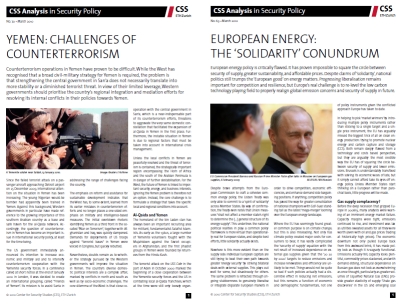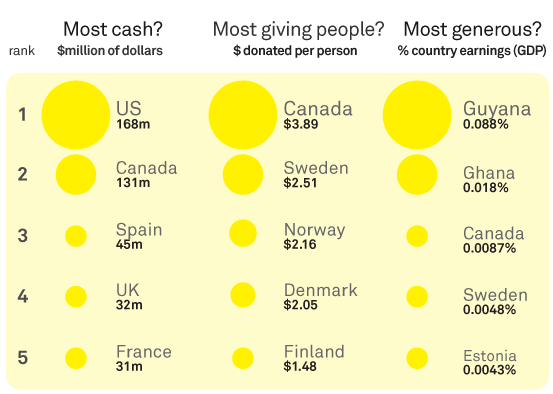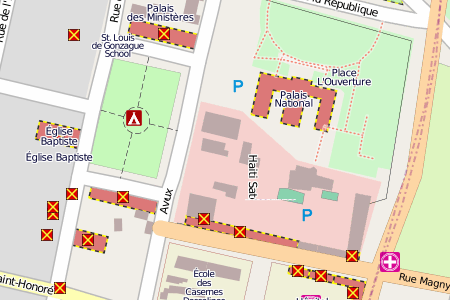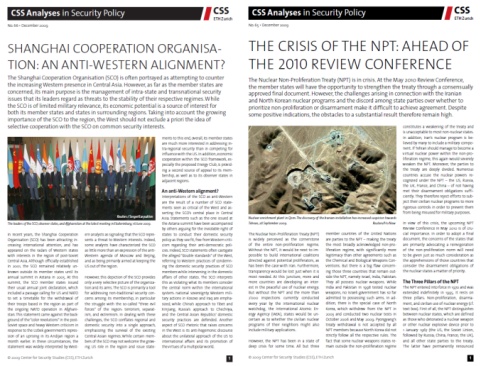
Our colleagues at the Center for Security Studies have recently published two new policy briefs.
Mathew Hulbert looks at European energy policy and the interconnected goals of availability, affordability, and sustainability. He argues that Europe needs to re-level the low carbon technology playing field to properly realign global emission concerns and security of supply in the future. Also check ISN resources on European energy policy.
Roland Popp examines Western governments’ counterterrorism strategy in Yemen. He emphasizes the need to take the resolution of Yemen’s economic and social problems as a starting point. The ISN Digital Library offers further resources on Yemen.




